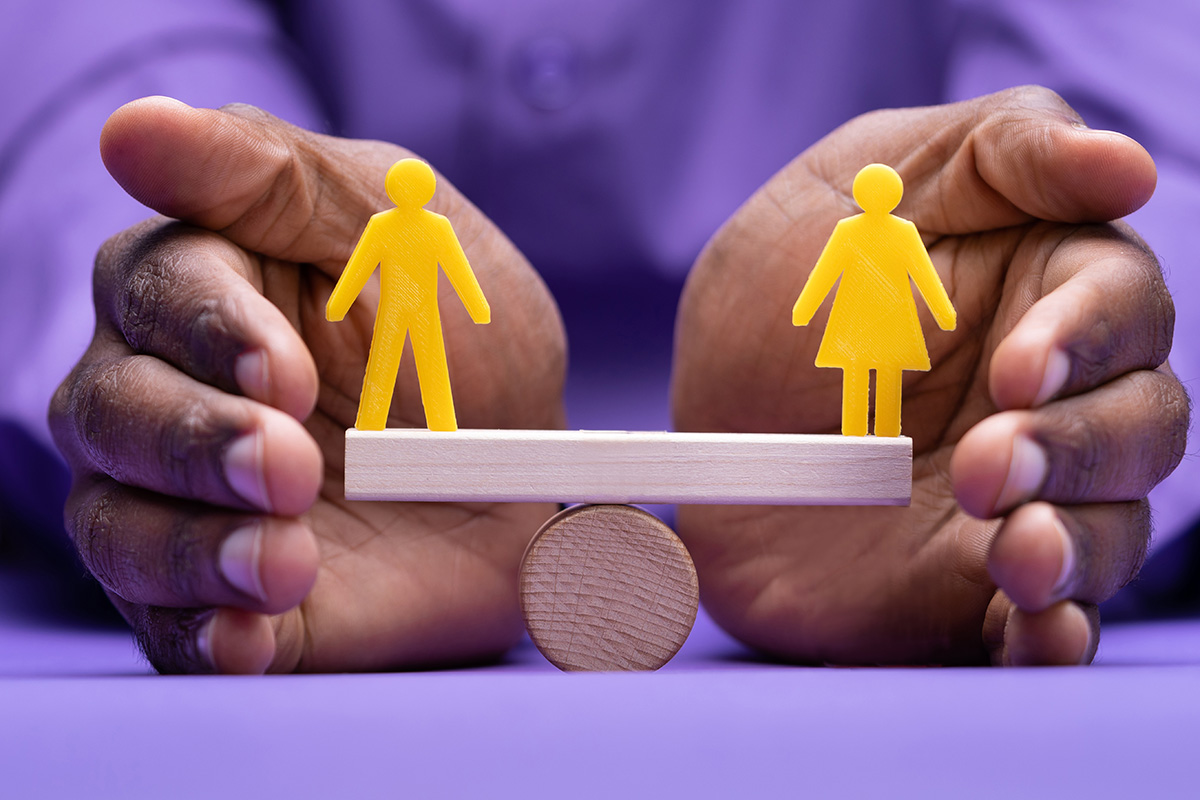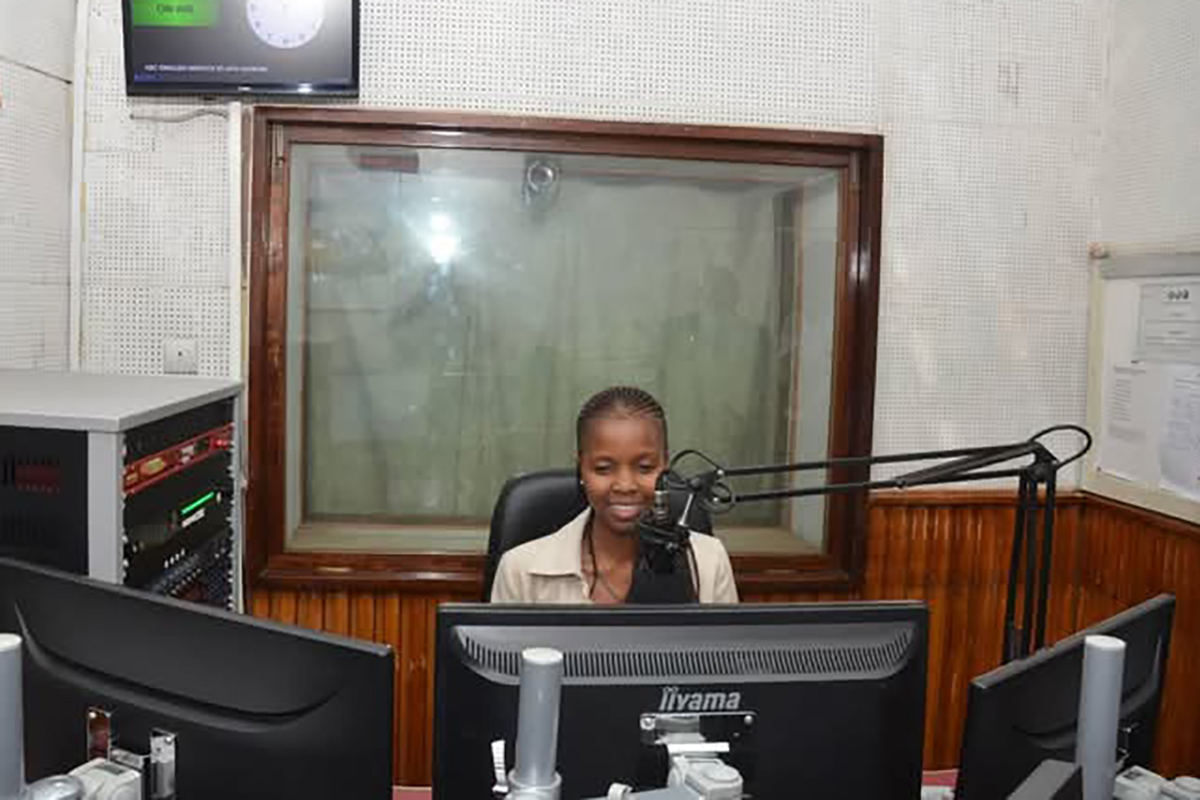The Nigerian Law Loves Men More
April 27by Similoluwa Ifedayo
When Will Women Be Treated Fairly and Equally in Nigeria?
In 2025, if Kate, a British woman, marries a Nigerian man, she can become a Nigerian citizen within a year. But if I, a Nigerian woman, marry a foreign man, the law says he must live in Nigeria for at least 15 years before he can even apply for citizenship. Same love. Same commitment. Same citizenship title. But different rules.
Why? Because he is a man—and I am a woman.
Nigeria’s Constitution, the very document meant to guarantee justice and equality, remains one of the first culprits in institutionalising gender inequality. Section 26(2)(b) of the 1999 Constitution permits a foreign woman married to a Nigerian man to obtain citizenship by registration. However, it remains silent on foreign men married to Nigerian women—forcing them through a far more complex and prolonged naturalisation process.
This isn’t just an oversight—it’s a message. One that says, even in the eyes of the law, a woman’s identity is secondary, her worth negotiable, and her belonging conditional.
And this legal bias is only the beginning.
A Country That Favours Men
Nigeria is a society where culture, law, and religion have formed an unholy alliance against women’s full participation in both public and private life. In Igbo tradition, for instance, women were long denied the right to inherit property from their fathers. While the Supreme Court, in the landmark case of Ukeje v. Ukeje (2014) LPELR-22724(SC), declared this practice unconstitutional—upholding the right of daughters to inherit—custom continues to whisper louder than law. Many families still cling to tradition, sidelining daughters in matters of inheritance.
In the northern regions, certain interpretations of customary and Sharia law reinforce early marriage and restrict women’s autonomy, often without their informed consent. While not all Islamic or cultural traditions condone this, legal ambiguity and community pressure make it difficult for girls to escape these fates. Among the Yoruba, though inheritance rights are comparatively more balanced, women still face subtle exclusions. In some families, major decisions—especially about land and ancestral property—are considered the domain of male elders.
Whether north, south, east, or west, the underlying message remains the same: a woman’s place is mostly after a man’s, scarcely beside him. In her father’s house, she is sometimes an outsider. In her husband’s house, she is a visitor. In society, she is too often invisible.
So, I ask again—where does a woman truly belong?
Even in politics, the disparity is glaring. All 36 state governors in Nigeria are male. Since independence, not one woman has ever been president. In the current 10th National Assembly, women occupy just 4 out of 109 seats in the Senate (2.7%) and 17 out of 360 seats in the House of Representatives (4.7%). Compare this to the fact that women make up nearly half—49.4%—of Nigeria’s population.
The message is loud and clear: Nigerian women are good enough to vote, but not to lead. And it makes me wonder—what is it men see in us that makes them believe we aren’t fit to lead? Sincerely, it’s sad.
This Must Change—Now
To the Nigerian government, I say this with urgency and conviction: It is time to right these wrongs.
1. Amend the Constitution
Remove all discriminatory clauses—starting with Section 26. Citizenship, inheritance, and leadership must be accessible to both genders equally.
2. Implement Affirmative Action
Enforce a minimum 40% quota for women in elective and appointive positions across all levels of government. We cannot change the game without changing the players.
3. Invest in Girl-Child Education
Education is the first weapon in fighting inequality. No girl should be denied school due to poverty, marriage, or tradition. No female should be married against her will based on culture or religion.
4. Partner With Cultural and Religious Leaders
Engage them in reform. Laws can change policy, but leaders shape minds. Cultural transformation must walk hand-in-hand with legal change.
5. Create Safe Legal and Social Frameworks for Women
Ensure every woman has access to legal aid, gender desks, and safe shelters—especially in rural areas, where silence is often forced and violence is normalised.
Nigeria cannot truly develop if half of its population remains ignored, sidelined, or silenced. Gender equality is not a Western concept. It is not an agenda. It is not a destination. It is a right—divinely, legally, and morally.
The government must ask itself: What kind of legacy do we want to leave behind?
To every citizen: What kind of country do we want our daughters to inherit?
And to every woman in Nigeria: You belong. You matter. You deserve better.
The time for equality and equity isn’t tomorrow. It’s not next year. It’s now—loud, urgent, and long overdue. Equality isn’t a favour. It’s a constitutional obligation—and a moral debt we must repay, now.






